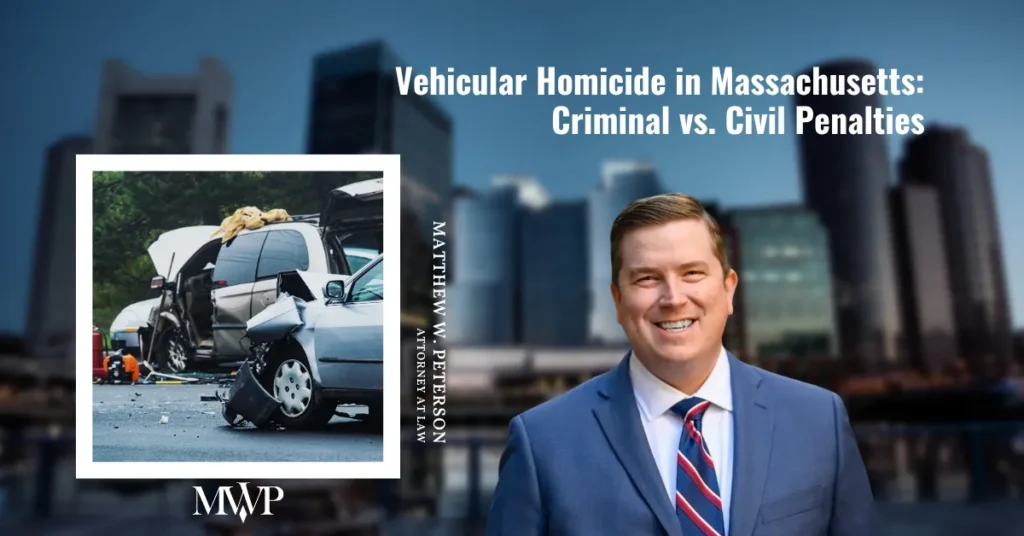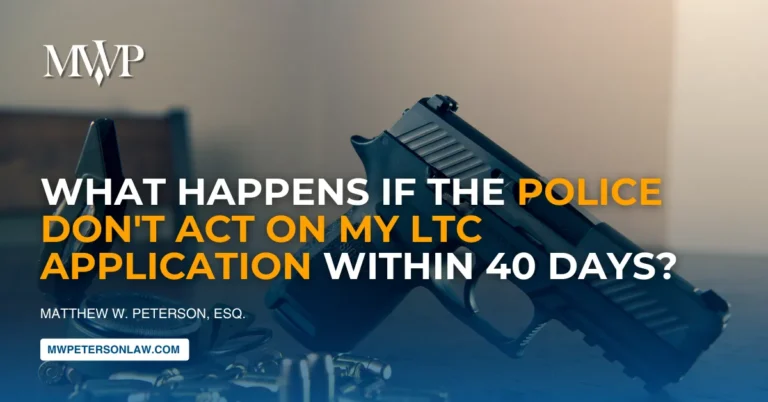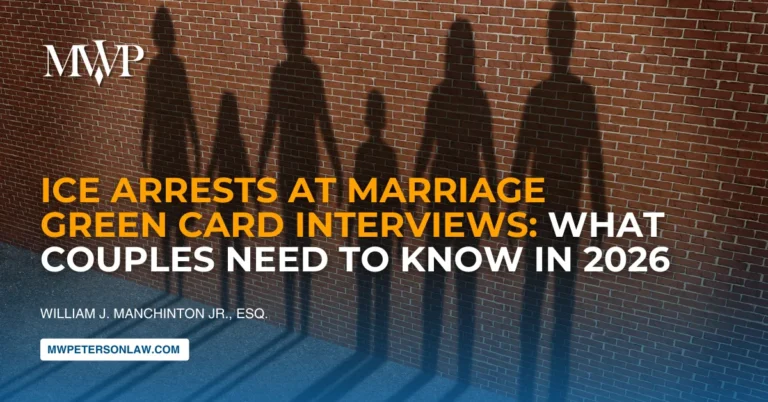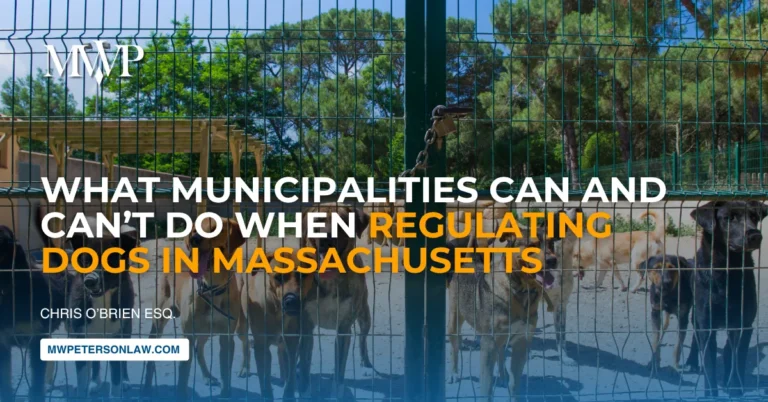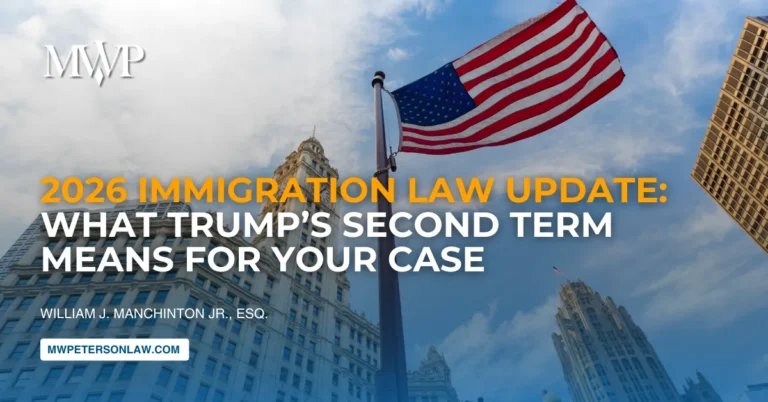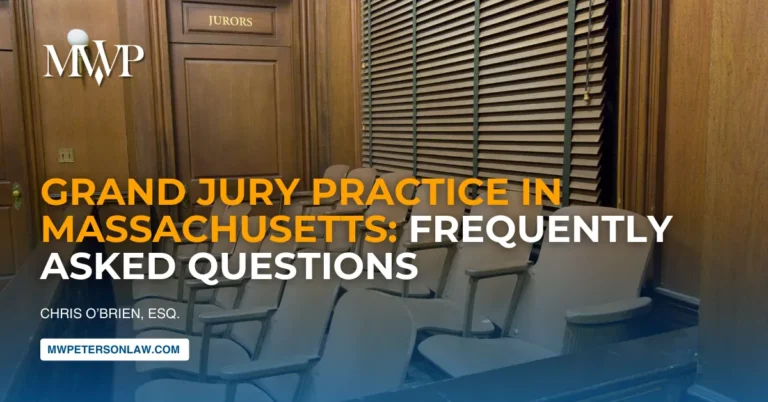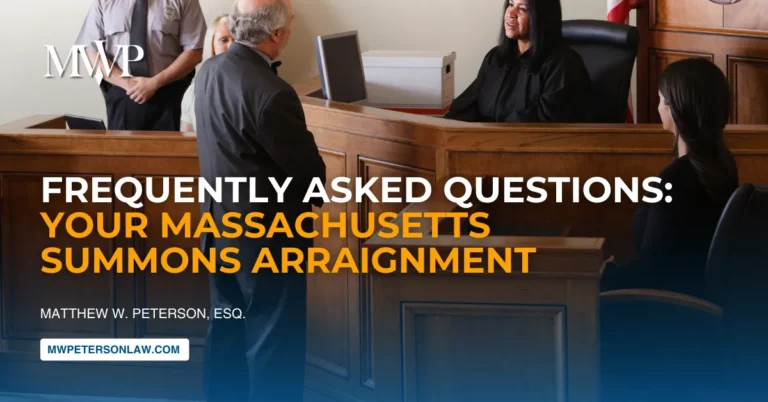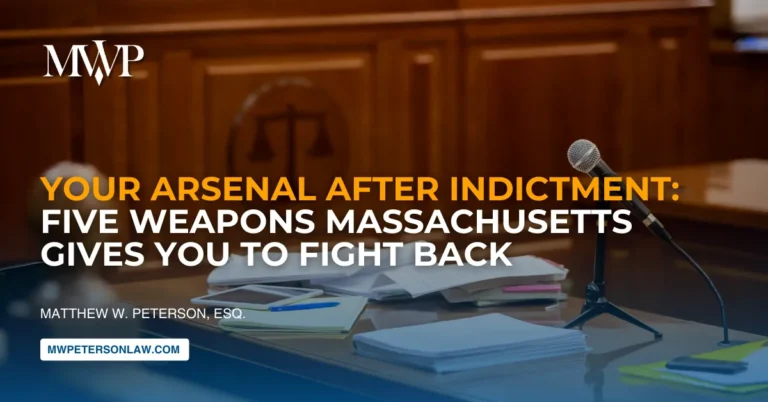Vehicular homicide charges in Massachusetts carry severe penalties and lasting consequences. This article highlights the key legal distinctions between criminal and civil penalties, enabling you to understand what to expect if you or a loved one is facing such charges. It signifies the importance of knowing your rights, the legal process, and the potential outcomes under Massachusetts law. At The Law Office of Matthew W. Peterson, our experienced Boston criminal defense attorneys understand how overwhelming and stressful these situations can be. Our team is here to guide you through every step of the process and fight for the best possible outcome in your case.
Massachusetts Criminal Penalties for Vehicular Homicide
In Massachusetts, vehicular homicide is defined as causing another person’s death through negligent or reckless driving under M.G.L. c. 90 § 24G. The severity of criminal penalties often depends on factors such as intoxication, irresponsible behavior, or prior offenses.
Penalties for Negligent Operation
If a fatality occurs due to negligent driving (failing to exercise proper care), criminal penalties typically include:
- Up to 2.5 years in jail
- Fines ranging from $300 to $3,000
- License suspension for up to 15 years
Penalties for Reckless or Intoxicated Operation
Vehicular homicide involving reckless driving or driving under the influence (DUI) carries more severe consequences, including:
- Mandatory imprisonment ranging from 1 to 15 years
- Fines up to $5,000
- License revocation lasting between 15 years to life
Massachusetts law strictly enforces mandatory minimum sentences when drugs or alcohol are involved, emphasizing the seriousness of these offenses.
Massachusetts Civil Penalties for Vehicular Homicide
In addition to criminal charges, individuals accused of vehicular homicide may face civil lawsuits for wrongful death. These lawsuits seek financial compensation for the victim’s family.
Types of Civil Damages Awarded
In a wrongful death civil suit, families can recover damages such as:
- Medical and funeral expenses
- Loss of future earnings and financial support
- Emotional pain, suffering, and distress
- Loss of companionship, guidance, and consortium
Civil liability is easier to establish than criminal guilt, requiring only that it’s more likely than not (a “preponderance of evidence“) that the defendant was negligent.
Key Differences: Criminal vs. Civil Penalties in Massachusetts
Burden of Proof
- Criminal Cases: Prosecutors must prove guilt beyond a reasonable doubt.
- Civil Cases: Plaintiffs must show liability by a preponderance of the evidence (greater than 50% likelihood).
Purpose of Penalties
- Criminal Penalties: Aim to punish offenders and deter future wrongful conduct.
- Civil Penalties: Aim to compensate families financially for their loss.
Consequences
- Criminal: Results in jail or prison time, fines, and license suspensions.
- Civil: Results in financial settlements or judgments, but no jail time or criminal record.
Common Defense Strategies for Massachusetts Vehicular Homicide Charges
Effective defense strategies often involve:
- Demonstrating absence of negligence or recklessness
- Challenging the accuracy of blood alcohol or drug tests
- Disputing causation (whether the defendant’s actions directly caused the victim’s death)
Experienced attorneys familiar with Massachusetts law can significantly influence case outcomes by employing these defense strategies effectively.
Importance of Experienced Massachusetts Legal Counsel
Given the severity of vehicular homicide penalties, experienced legal representation is crucial. At the Law Office of Matthew W. Peterson, we specialize in defending vehicular homicide charges. Our dedicated criminal defense attorneys offer personalized defense strategies tailored specifically to your circumstances.
If you or someone you know faces vehicular homicide charges in Massachusetts, contact us immediately at 617-295-7500 for expert and confidential legal support.
Frequently Asked Questions
Q: What’s the primary difference between vehicular homicide and vehicular manslaughter in Massachusetts?
A: Vehicular homicide specifically involves death caused by negligent or reckless driving, while vehicular manslaughter is typically a broader term covering various types of reckless or negligent acts leading to death.
Q: Can I face criminal and civil cases simultaneously for vehicular homicide?
A: Yes. Criminal charges punish wrongful conduct, while civil lawsuits provide financial compensation to victims’ families. You can face both concurrently.
Q: How long does a wrongful death lawsuit take in Massachusetts?
A: Wrongful death lawsuits vary, often taking several months to several years based on complexity, evidence, negotiations, and court schedules.
Q: Is imprisonment mandatory if convicted of DUI-related vehicular homicide in Massachusetts?
A: Yes. Vehicular homicide involving DUI mandates minimum jail or prison sentences under Massachusetts law.
Q: What should I do if I'm charged with vehicular homicide in Massachusetts?
A: Immediately seek experienced legal representation. Early involvement of skilled attorneys can significantly influence case outcomes by protecting your rights and building a strong defense strategy.

